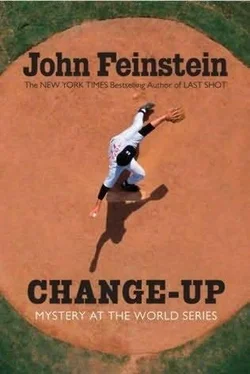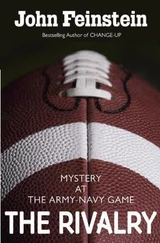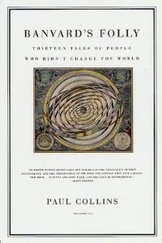Stevie couldn’t help himself, he laughed out loud. Boone looked right at him and winked. Then, with a straight face, he said: “Oh yeah, I would definitely call it even. I was thinking, even though the bases were empty, If I could just hit a six-run home run right here, I could win the game just like last night.”
The TV guy didn’t even flinch a little. “So it’s all even now, then?” he said.
“Actually, they’re up three to two,” Boone said.
Stevie had enough for his sidebar. As he started for the door, he noticed someone moving to block his path.
Norbert Doyle.
He tried to keep moving, but Doyle got right in front of him.
“Norbert, hi,” Stevie said, trying to sound friendly and casual.
Doyle ignored the greeting. “Why are you doing this?” he said, standing very close to Stevie. “Do you understand what’s at stake here? Do you know what happens if you write your damn story?”
“The truth comes out?” Stevie said, glancing around in the hope that no one would notice the conversation.
“The truth?” Doyle said, his voice rising. “You don’t know the truth. You aren’t even close to it.”
“How do you know what we’re close to?” Stevie asked, then regretted it because he really didn’t want an argument.
“I know,” Doyle said. He moved even closer to Stevie. “Let me tell you something, you write anything that hurts my kids, and I’ll come after you.”
He wasn’t shouting, but his voice was raised in an angry sort of whisper, and Stevie noticed a TV light shining in his face. Then another. Uh-oh. Player confronting kid reporter after World Series game. YouTube, here I come, he thought. Not to mention every local broadcast and maybe national too.
“Let’s talk about this tomorrow,” he said to Doyle. “Alone.” He looked around and said quietly, “Off camera.”
Doyle noticed the cameras too.
“Fine,” he said. “But this isn’t over.”
He walked back in the direction of his locker. Stevie tried to get to the door as fast as he could, but two TV cameras and a radio microphone blocked his path.
“What was that about?” one of the TV guys asked, a mike shoved in his face.
Stevie knew he had to come off very calm or he would make things worse. “Nothing important,” he said. “I have to get going, I’m on deadline.”
“But he was angry at you?” the guy persisted.
“Lots of people get angry at me,” Stevie said. “My English teacher is going to be really angry with me when I get back to school. I’m sorry, I have to go now.”
He bolted for the door before anyone could ask him another question.
He could feel his heart pumping from adrenaline. He walked as quickly as he could, head down, in the direction of the press box elevator.
He was stopped by the sound of a familiar voice. “Did my father talk to you?”
He looked up and saw Morra Doyle and felt his face burning.
“Only for a minute,” he said. “I think we’re going to talk tomorrow. I gotta run, Morra, I’m right on deadline.”
“That’s fine,” she said as he moved past her. “You may get some phone calls later.”
“Phone calls?”
“I think I may have to tell people how I had to fend you off at lunch when you tried to come on to me.”
He stopped and turned around. “Whaa?”
She gave him a sweet smile. “Do you think people won’t believe me?” she said. “See you in Boston.”
She turned and walked down the hall, leaving Stevie standing there wishing he had never heard the name Doyle.
STEVIE DIDN’T SAY ANYTHING about what had happened downstairs until everyone had written and filed their stories and they were on their way home in Kelleher’s car.
“So, now they’re resorting to blackmail,” Tamara said when Stevie had finished.
“But it can’t work,” Susan Carol said. “No one will believe a story like that.”
“As a matter of fact, there are people who will believe it,” Kelleher said. “But being accused of getting a little forward on a date isn’t that big a deal on today’s gossip meter. Stevie, you’re going to have to suck it up and just tell your side if it comes to that and not worry about what people think.”
“Great,” Stevie said. “My parents will be so proud.”
“Mine too, if it comes to that,” Susan Carol said.
Tamara’s cell phone rang. She looked at the number for a second and then answered.
“What’s up, Chico?” she said.
Stevie knew that Chico Harlan was the Post’s Nationals beat writer. Tamara listened for a minute, rolled her eyes, and said, “Hang on a sec.”
Holding her hand over the phone, she said, “According to Chico, several people went to talk to Doyle after the clubhouse incident. He said he had been telling you to stay away from his daughter, to stop calling her all the time.”
“That didn’t take long,” Stevie said.
“They can’t not write it,” Tamara said. “It’ll just be a note, but he wants to know if Stevie has any comment.”
Stevie looked at Kelleher, who looked at him in the rearview mirror. “Tell him that Stevie says, ‘This isn’t worthy of comment.’”
Tamara put the phone back to her ear and said, “ Chico, Stevie says, ‘This isn’t worthy of comment-for the moment.’”
After she hung up, Kelleher said, “That’s a better answer. Lets people know there will be some kind of response coming.”
Stevie felt a little bit better, but not much.
He called his parents the next day and filled them in. His dad had read a note in the Philadelphia Inquirer similar to Harlan’s except that it said he couldn’t be reached for comment.
“Maybe you should come home instead of going to Boston,” Bill Thomas said to his son. “It wouldn’t be awful if you got back to school a couple days sooner, you know.”
About the only thing Stevie was dreading more than Boston was going back to school. “No thanks, Dad, I’m going to go to Boston,” he said.
His dad didn’t argue. “Tell Bobby I expect him to keep an eye on you around the clock the rest of the way,” he said.
“I’ll tell him,” Stevie said, intending to do nothing of the sort.
The flight back to Boston went smoothly, but when Stevie turned his phone back on in the airport, there were thirty-four messages for him. People had gotten his number and were looking for a follow-up on his brief no-comment to Harlan. Kelleher rolled his eyes when Stevie told him.
“You can answer all of them at once when we get to the ballpark tomorrow,” he said. “Nothing before that. The clubhouses will be closed when we get there, and they’ll all probably come at you when you walk onto the field. You’ll deal with it then.”
“What am I going to say?” Stevie asked.
“I’m not sure yet,” Kelleher admitted.
The four of them were sitting in Tamara and Bobby’s room back at the Marriott Long Wharf, which had a wonderful view of Boston Harbor. Stevie found it hard to believe it was only six days ago that they had sat in this same hotel getting ready for the series to begin.
“The bigger question is, how do we nail down this story?” Susan Carol said. “We can’t write it without talking to Doyle, can we?”
“No, we can’t,” Kelleher said. “In fact, until we talk to Doyle, I’m not even sure there is a story.”
“What do you mean?” Stevie asked.
Kelleher shrugged. “I can understand why the cops didn’t go after him, and I’m not sure we should go after him either. His wife died-he has to live with that forever. If he admits he was drinking and tells us that the movie of his life isn’t going to make up a second car or make him out to be innocent…”
Читать дальше












